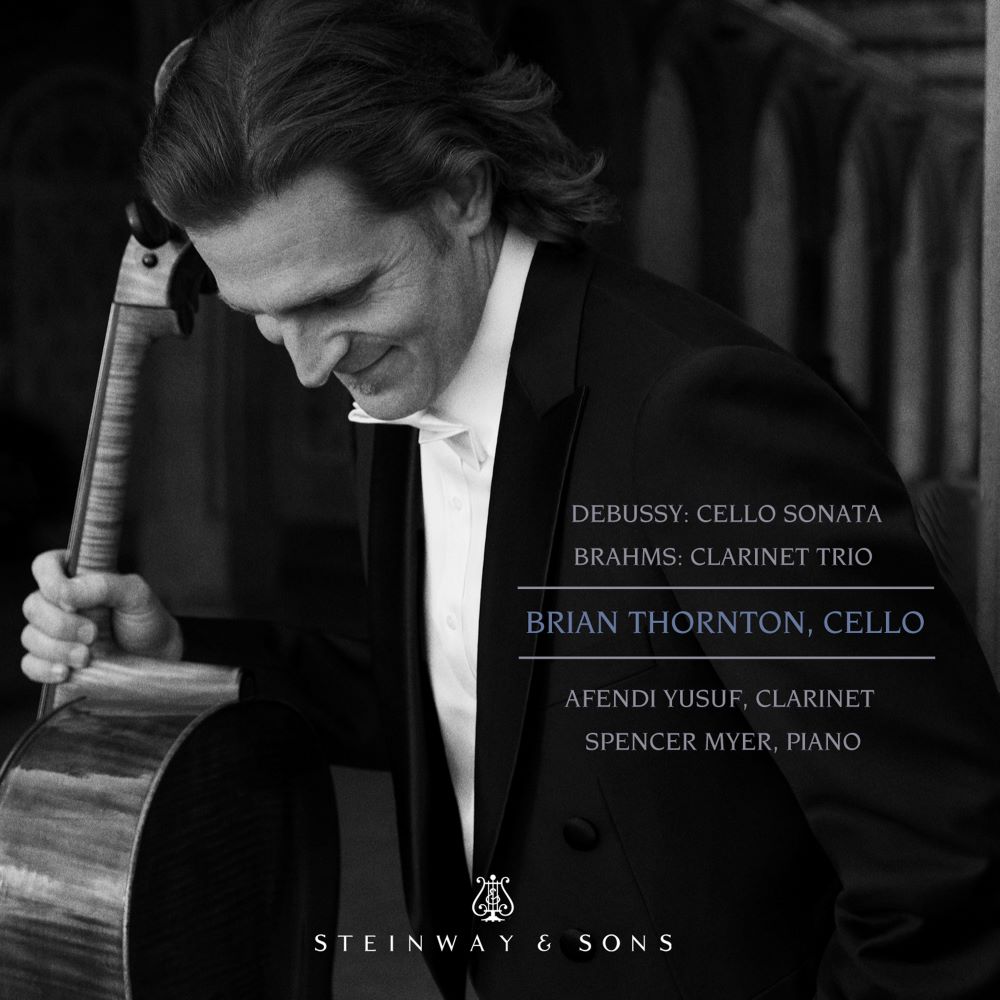by Rory O’Donoghue

The Cello Sonata brought Debussy back to chamber music for the first time since his 1893 String Quartet. It also followed almost a year’s hiatus from composing after the outbreak of WWI, as he sought treatment for the colon cancer that was ravaging his health. He envisioned a series of “Six Sonatas for various instruments,” of which only three were completed before he succumbed in 1918. These final works were characterized by a return to Classical forms, drawing inspiration from the French Baroque. Aside from that, the Cello Sonata is harmonically jagged and thematically fragmented, a synthesis of different periods of Debussy’s career. The style is tricky to capture, but Thornton and Myer find the perfect balance of risk and reserve.
Myer handles the ornamented opening of the first movement with simple grace, smoothly following its pentatonic contours. Thornton joins forte with plaintive tone a few bars later, and the two organically gain energy. Even in quiet sections, they play with robust intensity, combining to great effect in the billowing color palette of the dolce sostenuto theme. Their sound dissolves into something more crystalline as the movement closes, hollow and twinkling.
Movements two and three are played attacca, emphasizing the piece’s drive to its conclusion. The duo tap into a common impulse, playing with phenomenal ensemble in the tricky pizzicato sections of the second movement. Some of the swells in the third movement create a bit of a frenzied edge, but Thornton and Myer stay in sync, moving as one, like sinuous waves of rubato lapping together at modal shores.
Although Brahms often talked about retiring from composition, he never did. Part of his inability to give it up was due to his 1891 meeting with Meiningen Court Orchestra clarinetist Richard Mühlfeld. Brahms had never used the clarinet in chamber works, and was completely taken by Mühlfeld’s virtuosity and mellifluous tone. Over the next three years, he wrote four chamber works for the instrument, all of which hold unshakeable positions in the repertoire. Showcasing Yusuf’s impressive chops and scintillating vision, this disc joins the ranks of the many great recordings of Op. 114.
Yusuf brings focused radiance to the brooding theme that begins the first movement, playing with the liquidity of the German school, but with the velvet tinge of the modern American orchestral clarinet. Leaving room for tasteful indulgences, all three musicians navigate easily between dynamism and stasis. Thornton displays impressive sensitivity towards the clarinet’s vast dynamic range, but the mixing of the album prioritizes the clarinet most of the time. Because Yusuf’s touch is so magical, this isn’t a major issue.
Compared to Brahms’ late clarinet works, the Trio feels like an introduction to what he would eventually accomplish. He’s not yet in full command of the instrument’s potential, and his themes almost drag toward the end. (His Clarinet Quintet in b, Op. 115, is a good deal longer, but flows by much more inventively.) Thus it becomes the task of the ensemble to enliven the Trio a bit, which they achieve by taking some choice risks in the last three movements. Yusuf blooms out of nowhere at the opening of the second, inviting Thornton to join in with similar expressive ideas. When both players submerge into their lower registers, they retain a delicate lightness of being.
Yusuf, Thornton, and Myer relish in the showmanship of the third movement, which feels like a conscious nod to its near-excessive sentimentality. They craft a host of different characters in the fourth, contrasting tempestuous themes with lovely sweet ones. As they push through to the end, they never lose their artistry, thoroughly committing to communal gestures. Both through courage and gentleness, they are worthy handlers of the masters’ music.
Recorded in Oberlin’s Clonick Hall by Michael Bishop and Thomas C. Moore of Five/Four Productions, the sound quality and balances are excellent.
Published on ClevelandClassical.com March 15, 2019.
Click here for a printable copy of this article



